Have you ever stood in a coffee shop, looking to buy yourself some new Specialty Coffee beans, and as you read the package, you see the word ‘washed’?
We quickly discovered that it is not always about the roasting of your beans, there is actually a little more to the specialty coffee bean processing phase far before the roasting even starts. This is where you can have washed (wet) and unwashed (natural) coffee processing methods.
So what is the difference between these two methods? What is better? And does this affect the flavour of your Specialty coffee bean? We decided to do some research and find out.
The general idea why specialty coffee is washed is that washed methods create a much brighter and cleaner bean that has an enhanced and fruitier acidic flavour, focusing on the actual bean, while unwashed methods created a heavy but much smoother and sweeter bean.
Table of Contents
Specialty Coffee Processing
Each coffee fruit (or cherry) is made up of several different layers, therefore, in order to brew, the beans need to first go through processes to remove these layers and retrieve the coffee bean (or seed) from its fruit.
There are several methods to do this, each having an effect on your final coffee brew, and ultimately the flavour that you enjoy.
Read: What is Specialty Coffee & The Processes of Making it?
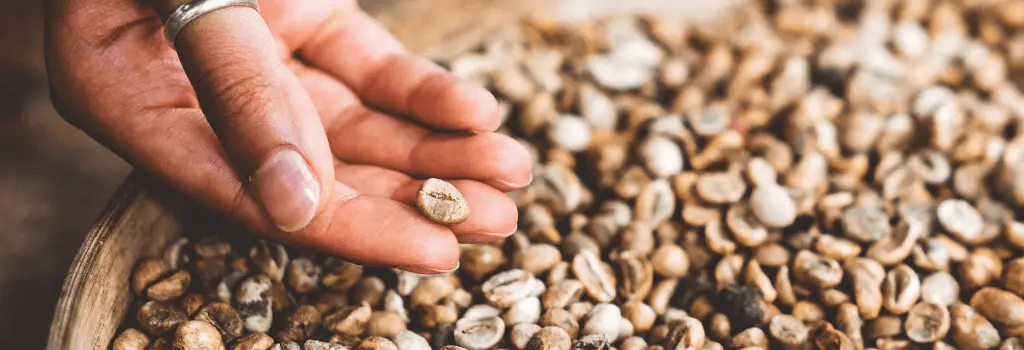
What is Washed Coffee?
Washed coffee or commonly known as wet coffee is the process where the coffee bean has had various fruit layers removed before the drying process begins.
Traditionally a washed coffee is where the use of water has been applied to wash off the mucilage after the coffee has been fermented.
Mucilage is the silky type sticky layer that is responsible for the majority of the coffee sweetness.
Once the mucilage layer has come off over a period of time with turbulent water, the coffee is then dried.
Washed Process (Step by Step)
In order to truly understand why Specialty coffee is washed, you need to have an idea of the washing process.
Although this can be a complex process, we have broken it down in an easy step-by-step method.
Step 1. Sorting
Once the coffee fruit has grown and been picked, in order to start the Specialty grading phase, the coffee needs to be sorted to ensure any damaged or unripe coffee fruits are removed.
Step 2. Pulping
Now the skin of the coffee fruit has to be removed, commonly known as pulped.
This is generally carefully done in specific machines and is where all the layers are removed except for the mucilage layer.
Step 3. Fermentation
The fermentation stage can take up to 24 hours to finish, this is where all the coffee goes into tanks full of water.
During fermentation, tiny microorganisms in the coffee beans create enzymes which help break down the mucilage.
Step 4. Wash
After the Fermentation, the beans are then washed and the mucilage layer is now removed from the bean.
Step 5. Drying
The fifth and final step is the drying phase.
This can either be done naturally with the sun’s heat or mechanically, many combining the two, but generally comes down to the size of the farm.
Smaller farms can easily dry naturally as they deal with smaller batches.
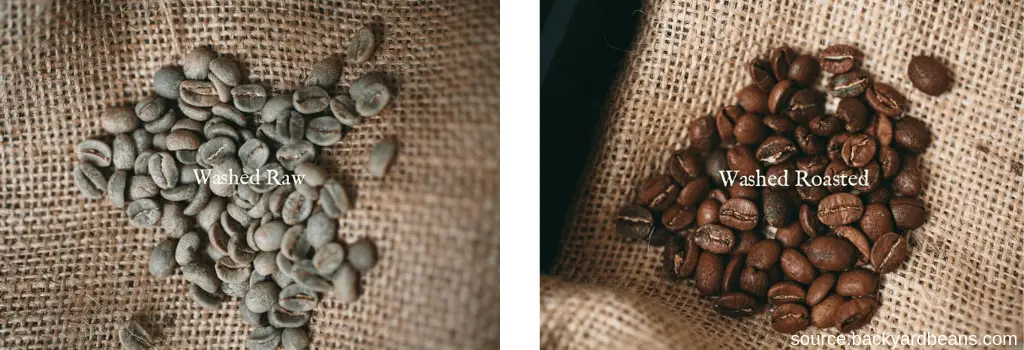
What is Unwashed Coffee?
Unwashed coffee is considered to be one of the oldest methods used to separate the bean from its fruit.
So it should not be thought of as a process that is wrong, as this method has actually been used for hundreds of years.
This process is arguably the most natural way of extracting the coffee bean from its fruit, which is why you may see the term natural process, or the dry process, all being the same thing as unwashed coffee.
The coffee fruit is laid out and dried, which can take several weeks in the sun, and will be turned often to avoid spoilage.
This method will mostly find in hotter countries that have minimal rainfall and longer periods of sunshine.
The process is generally complete once the coffee fruit/cherry reaches around 11 per cent in moisture.
What Does Washed Coffee Taste Like?
Washed coffee has a much different flavour than unwashed coffee.
Many use the term ‘clean’ and there is a reason for it.
Because the sweetness of the mucilage layer has now been removed, there is more concentration and focus towards the actual bean itself.
This results in a clean, lively and fruity-tasting coffee, with a slight fresh acidity.
These unique characteristics are what specialty coffee enthusiasts and coffee lovers alike are drawn to.
Therefore, washed coffee is generally more popular in the Specialty Coffee industry as you are tasting the bean’s true flavours, including the origin of the bean, and not tasting the impact of the coffee bean processing methods.
If the coffee bean has been washed properly, you will find intrinsic flavours develop, all of which vary depending on the origin of the specialty coffee bean.
What Does Unwashed Coffee Taste Like?
Unwashed coffee on the other hand has a much heavier body.
It produces a complex and smooth-tasting coffee.
Due to the heavier body and sweeter characteristics, notes of blueberry, strawberry or tropical fruit-like taste pull through.
Washed Coffee Vs Unwashed Coffee Processes (at a glance)
|
WASHED COFFEE |
UNWASHED COFFEE |
|
New Method |
Old Method |
| Dried with the sun, drying tables, or mechanical | Spread out to dry in the sun (up to 4 weeks) |
|
Fermented in water and then washed | The process used when water is scarce |
|
Clean, bright and complex flavours (nutty) |
Heavier and sweeter flavours (fruity) |
|
Requires more skill |
Requires less skill |
|
Much more expensive |
Not as expensive |
What Process is Better?
A common question we get asked is what process is better? Washed vs Unwashed?
Both achieve the same goal, which is to remove the coffee bean from its fruit and the various layers of skin that surround it, while still retaining the natural aromas.
In truth, it depends on what kind of coffee drinker you are, as well as what you prefer to taste.
Everyone has their own particular preference and different opinions on taste.
However, it is clear that washed coffee is much more suited to coffee that comes with a unique, and large taste profile, and therefore, a better option for specialty coffee and those who enjoy Specialty Coffee brews.
More importantly, washed coffees are generally much more consistent in their flavours and their unique characteristics, which really matters in the Specialty Coffee world.
What Coffee Bean Processing Method is More Consistent?
If the coffee bean has been unwashed, it is much harder to keep consistency, and overall pass the strict grading processes that Specialty Coffee go through.
Why is this? Well in short this is because when you wash coffee, all the fermentation happens at the beginning, allowing more control during the processing stages.
Whereas unwashed coffee, the fermentation will continue within the coffee bean/fruit during the drying phases, which is a long period of time, and therefore losing control.
Separating the bean from its fruit can be an unpredictable process.
Washed coffee has a lot more skill involved compared to unwashed coffee.
Due to the great levels of skill, the quality of washed coffee is generally at a higher grade than unwashed coffee.
When you are buying Specialty Coffee, you will want to ensure you choose the washed choices if you are after the true consistent taste of the bean and its origin, it will generally say this on its packaging.

What Specialty Washed Coffee Can You Try?
Have you tried washed Specialty Coffee before? Or maybe you are looking to find something else out there?
Generally washed Specialty Coffee can be pretty expensive, and it is true, you do get what you pay for, however, here at coffeekiwi.com, we like to share what we have tried, and this brings us to BeanPress Coffee Co.
So let’s find out the beans we used in more detail.
Product Description
Beanpress Coffee Co. is a specialty coffee roaster in the UK.
They buy coffee grown by skilled producers around the world and roast them carefully in their small roasters in Dorset.
They keep their roasts light, so you can experience the coffee’s true character and natural sweetness.
This coffee is from Gedeo, a small zone in the highlands of southwestern Ethiopia. It’s an extremely significant area for Ethiopian coffee.
Gedeo is home to the famous town of Yirgacheffe – and the intensely aromatic coffee famed for this name.
This coffee is produced by numerous smallholders in the Gedeo zone, mostly on small ‘garden’ farms, and processed using the fully washed method at a central washing station.
It’s a great example of a light roasted ‘Yirgacheffe’ coffee, with a bright, zesty character and light body – best brewed with a filter cone or Aeropress, and enjoyed black.
Product Description
Beans Coffee Co. Strada coffee comes from a region in South East Brazil.
The Strada Blend is their interpretation of the traditional espresso.
It is roasted for a longer period of time and at a higher temperature than some of their other coffees, resulting in a stronger taste and a less acidic flavour.
The blend consists of 80% Arabica and 20% Robusta beans.
In 2019, it received a 2-Star Gold award in the Great Taste Awards, with judges praising its “lovely dark chocolate note with a mild smoky finish” and noting that it is “smooth and well-rounded.”
How Does Bean Press Coffee Co Wash The Sourced Specialty Coffees?
The most common method of processing Bean Press Coffee is ‘fully washed’ or ‘wet-processing’.
Using this technique, ripe cherries are picked and transported to the wet mill on the same day.
Here they are fed into a reception tank where the beans fall into a rotating drum, with serrated teeth that scrapes off the outer layer of fruit and separates the seeds inside.
The seeds are covered in a sticky fruit mucilage, so from there are transported through concrete channels to a tank, which is then filled with water.
The natural yeasts and sugars start fermentation in the tank which breaks down the sticky mucilage over a period of 1 to 3 days.
After this stage, the coffee cherries are rinsed with fresh water and then taken to be dried in the sun on large patios or raised beds.
The cool nights and warm days in the regions they source their Specialty Coffee beans allow for a long, slow fermentation during processing, and strict attention to detail ensures a bright and sweet cup.

What is Semi Washed Coffee?
Although in this article we are concentrating on washed coffee vs unwashed, coffee and why Specialty Coffee is generally found washed, you will come across the term semi-washed in the coffee world processing stages.
So what is semi-washed coffee? Well, it is the aspects of both washed and unwashed coffee processes.
In this process, the outer skin of the coffee fruit is removed, however, the pulp will remain. These remains are then dried in the sun. Once the drying process is finished, the pulp that was left remains wet.
The beans are then extracted from the fruit, and therefore, a process that is coupled with both washed and unwashed processes.
What Does Semi-Washed Coffee Taste Like?
Beans processed with a semi-washed method combine both washed and unwashed flavour characteristics.
A coffee bean that has been semi-washed correctly will have the enhanced clarity of that washed bean, and the heavier bold sweetness of that unwashed bean.
Generally speaking, semi-washed coffee will often be a bolder coffee with an increased acidity compared to other processing methods.
Conclusion: Washed Vs Unwashed Coffee
It is fair to say that both washed and unwashed coffee has their place in the coffee industry, with both sharing their own pros and cons.
In today’s Specialty Coffee market, washed coffee has become one of the most popular and common methods of processing, with many Specialty Coffee sellers and consumers opting for the washed version.
This is because washed coffee is clean, fruitful, and intrinsic, and emphasises the variety of unique origin flavours, which unwashed coffee cannot develop.
There are various factors that have to be taken into consideration to ultimately determine the method of choice, including labour quality, access to water, sunshine levels, as well as altitude and soil levels.
Overall, whatever processing method you choose, you will happily enjoy a delicious cup of Specialty Coffee that has gone through a unique and complex process up to the point of arrival in your cup.
If you enjoyed this article, read more like this by checking out our Specialty Coffee Buyers Guides.

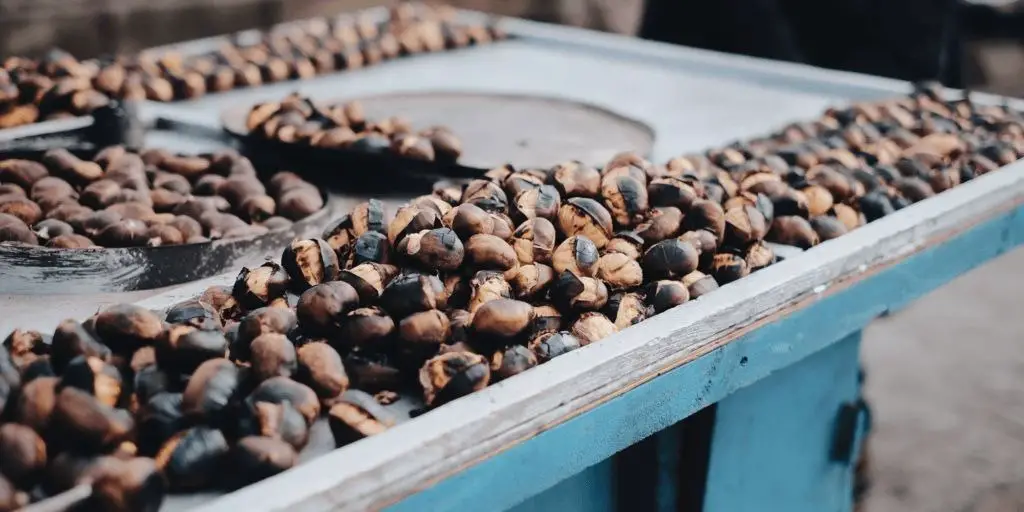




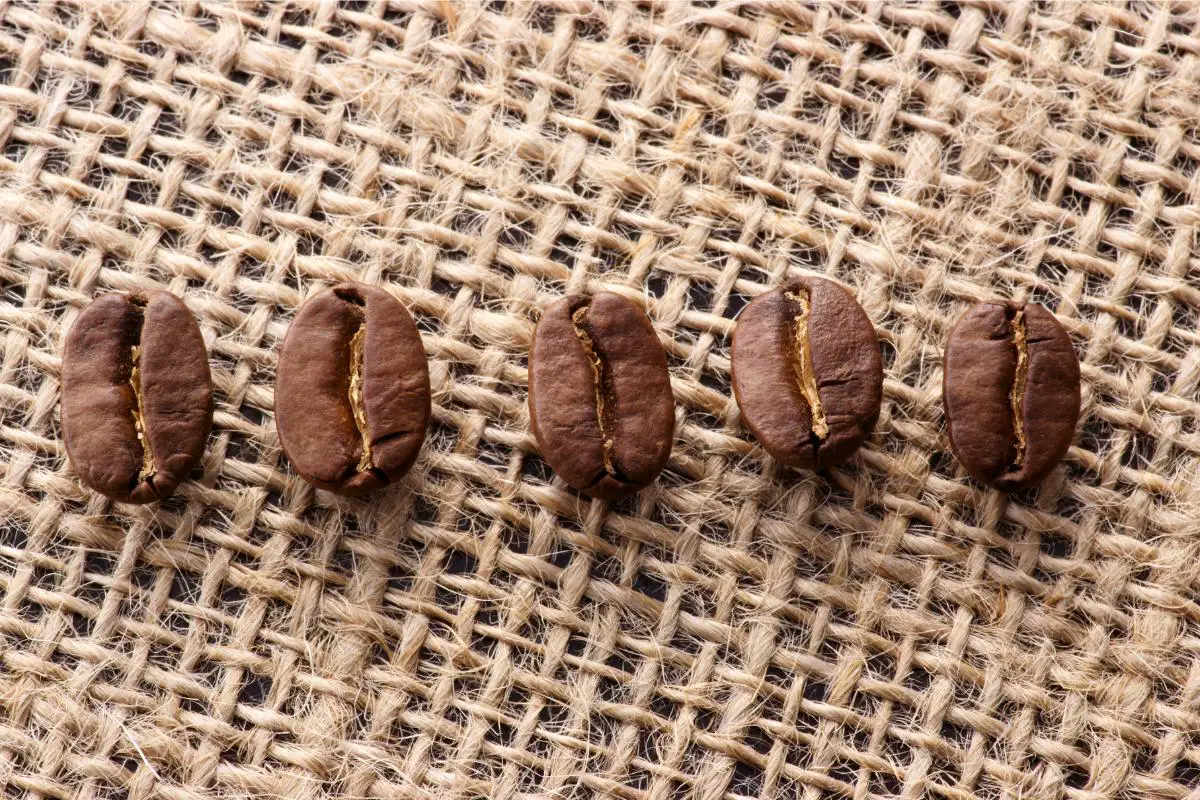
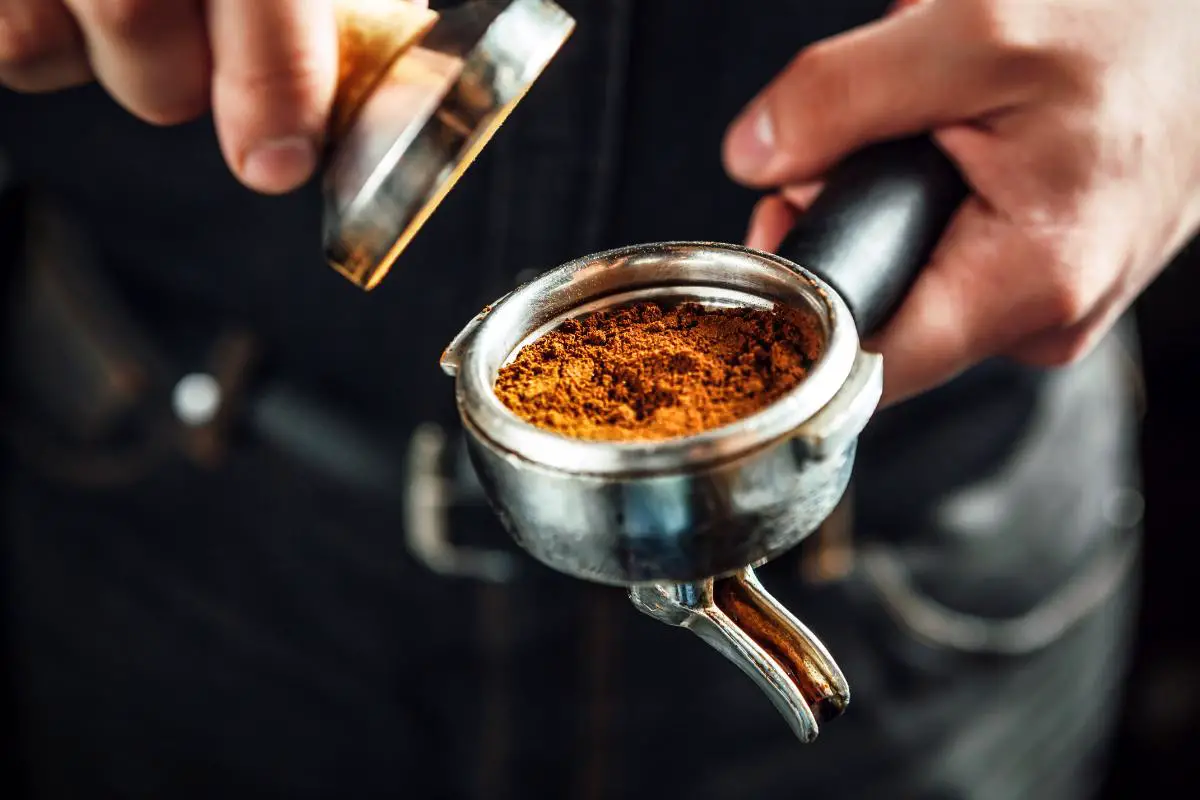
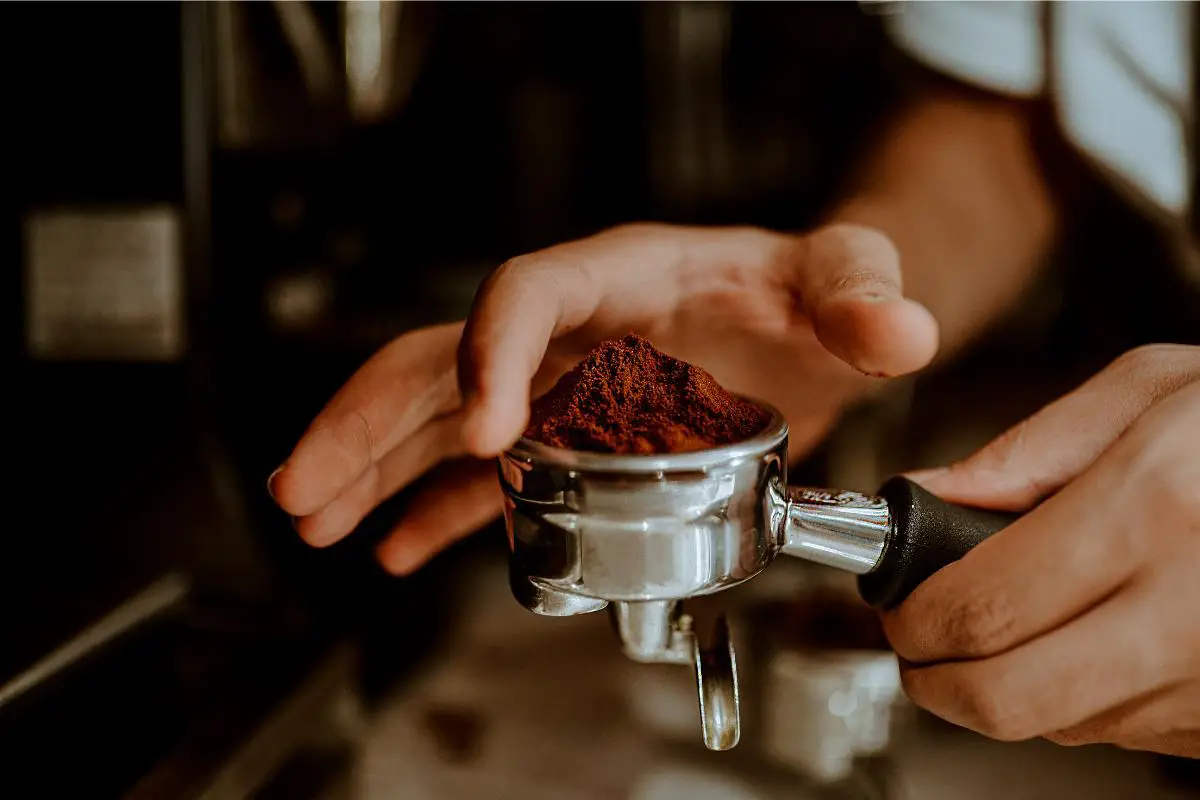
Leave a Reply